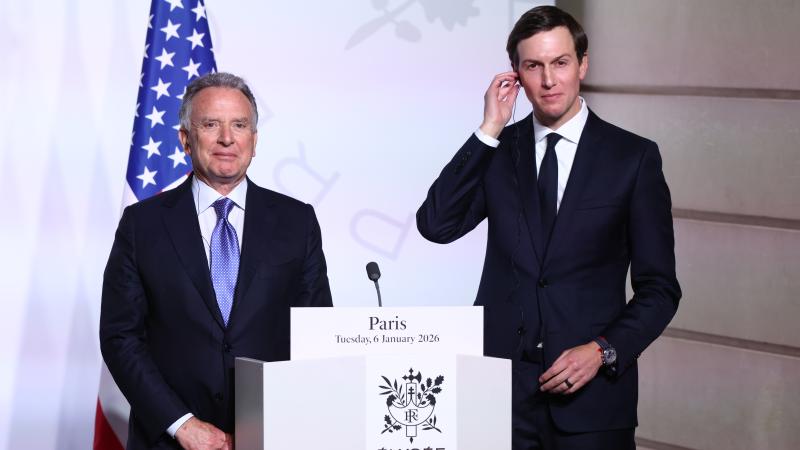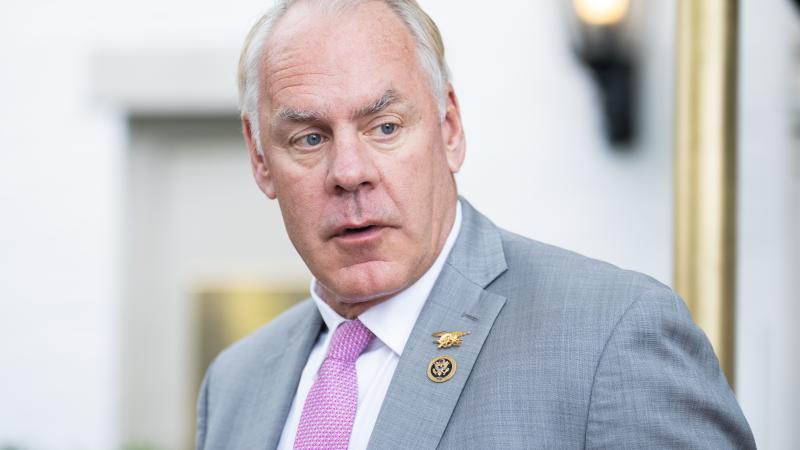Hamas continues to shape media narrative with unrealistic, changing cease-fire demands, experts say
"The way Hamas is able to play the media is breathtaking," a former Trump White House National Security Council official said.
Hamas' announcement that it would accept a cease-fire deal, even though it contained different terms than those proposed by Israel, was part of the group's attempt to control the media narrative and pressure Israel ahead of an invasion of Rafah, experts say.
"The way Hamas is able to play the media is breathtaking," former Trump White House National Security Council official Richard Goldberg wrote Monday on X, after the proposed cease-fire was announced.
Hamas said it told Egypt and Qatar that it had accepted a cease-fire deal one day after the terrorist organization fired rockets toward the area of the Kerem Shalom border crossing, where humanitarian aid was being brought into Gaza. The incident killed four Israel Defense Forces soldiers, injured several others and resulted in the temporary closure of the crossing.
Israel had opened the crossing for "humanitarian purposes" under pressure from President Biden.
Hamas made the ceasefire announcement – without releasing any details about its demands – hours after the IDF ordered about 100,000 Palestinians to evacuate the city of Rafah in the southern Gaza Strip on Monday in preparation for a military operation.
However, Israeli Prime Minister Benjamin Netanyahu's Office said that the "Hamas proposal is far from Israel's necessary requirements," and the country's war cabinet "unanimously decided that Israel is continuing with the operation in Rafah to exert military pressure on Hamas in order to advance the release of our hostages and the other goals of the war." Netanyahu also said that Israel would still send a delegation to continue the hostage negotiations.
Although Israel decided to proceed with the Rafah operation, some experts still criticized Hamas' timing of its announcement.
"So Hamas 'accepts' the one thing not offered: 'stopping military operations permanently,' leaving Hamas intact. And the media say Hamas has 'accepted' a ceasefire. I hereby accept Jeff Bezos' offer for a $2 billion annual salary," conservative commentator Ben Shapiro joked on X in response to an MSNBC report about the deal proposed by Hamas.
The Hamas deal would have involved the exchange of one Israeli hostage for 33 Palestinian prisoners based on seniority of detention in Israel; a permanent halt to Israeli military operations in Gaza; and the release of Israeli hostages in three stages, according to the report. Israel has not agreed to such terms and has vowed to continue its operations until Hamas is eliminated and the hostages are returned.
"This reported Hamas approval looks like textbook deception: approving a deal that isn’t on the table in order to apply pressure on Israel to accept Hamas terms," former IDF spokesperson Jonathan Conricus said on X after Hamas announced the deal.
The announcement of a ceasefire deal is "an attempt to apply increased pressure on Israel and suggest that Hamas is not the side to blame. This is unheard of," said Islamic terrorism researcher Khaled Hassan.
"Hamas 'agrees to a ceasefire' which nobody accepts except Hamas is like the Kremlin 'accepts the peace plan' which nobody accepts except [Russian President Vladimir] Putin. Both play the same KGB textbook on manipulating Western media and peaceniks," Sergej Sumlenny wrote on X. Sumlenny, a former business consultant, is the founder of the European Resilience Initiative Center, a group that seeks to promote cooperation between countries.
The Facts Inside Our Reporter's Notebook
Links
- Richard Goldberg wrote
- accepted a cease-fire deal
- killed four Israel Defense Forces soldiers
- "humanitarian purposes"
- temporary closure
- 100,000 Palestinians to evacuate
- Israel would still send
- Ben Shapiro joked
- MSNBC report
- former IDF spokesperson Jonathan Conricus said
- Islamic terrorism researcher Khaled Hassan
- Sergej Sumlenny wrote
- X















